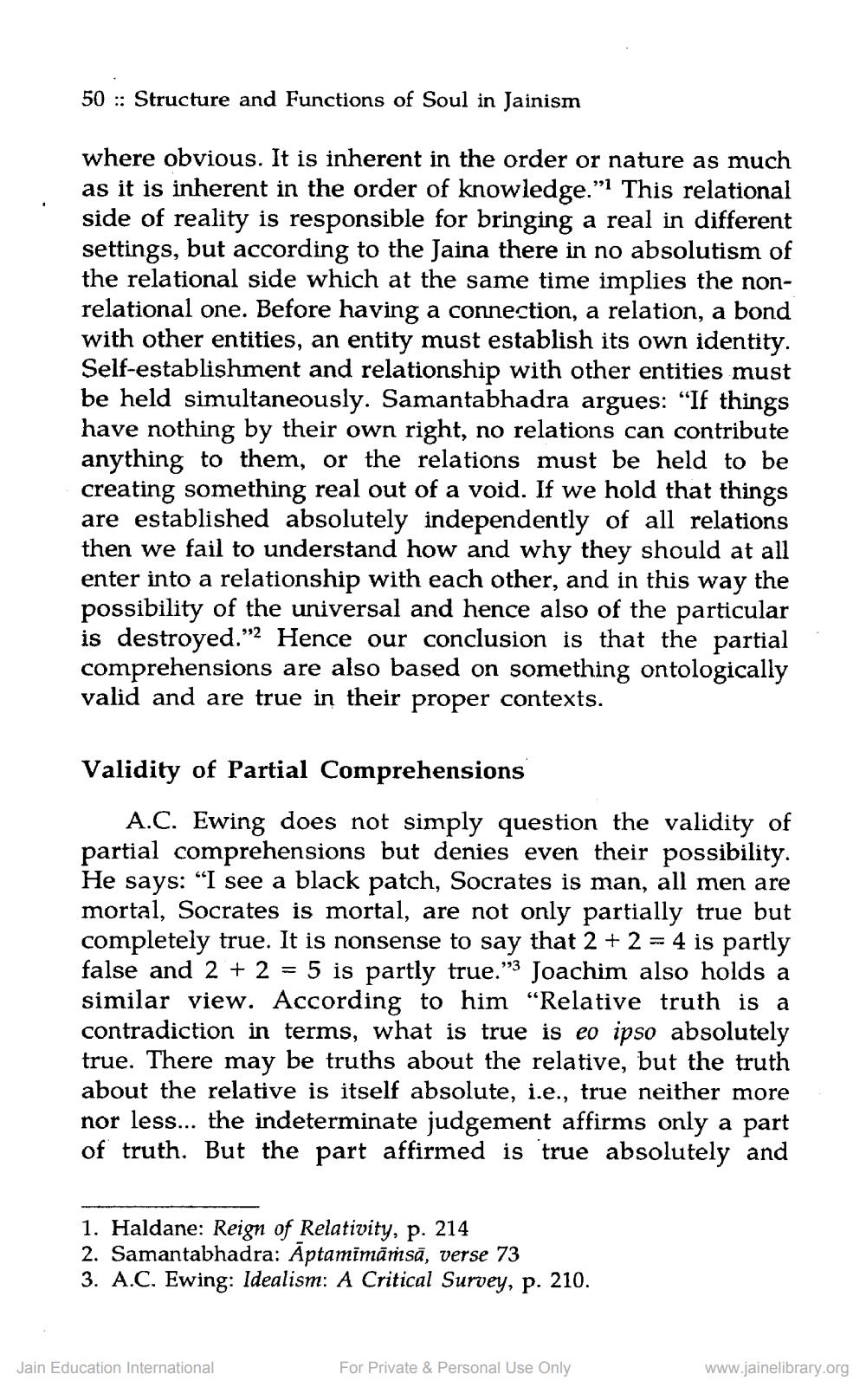________________
50: Structure and Functions of Soul in Jainism
where obvious. It is inherent in the order or nature as much as it is inherent in the order of knowledge." This relational side of reality is responsible for bringing a real in different settings, but according to the Jaina there in no absolutism of the relational side which at the same time implies the nonrelational one. Before having a connection, a relation, a bond with other entities, an entity must establish its own identity. Self-establishment and relationship with other entities must be held simultaneously. Samantabhadra argues: "If things have nothing by their own right, no relations can contribute anything to them, or the relations must be held to be creating something real out of a void. If we hold that things are established absolutely independently of all relations then we fail to understand how and why they should at all enter into a relationship with each other, and in this way the possibility of the universal and hence also of the particular is destroyed."2 Hence our conclusion is that the partial comprehensions are also based on something ontologically valid and are true in their proper contexts.
Validity of Partial Comprehensions
--
A.C. Ewing does not simply question the validity of partial comprehensions but denies even their possibility. He says: "I see a black patch, Socrates is man, all men are mortal, Socrates is mortal, are not only partially true but completely true. It is nonsense to say that 2 + 2 = 4 is partly false and 2 + 2 5 is partly true."3 Joachim also holds a similar view. According to him "Relative truth is a contradiction in terms, what is true is eo ipso absolutely true. There may be truths about the relative, but the truth about the relative is itself absolute, i.e., true neither more nor less... the indeterminate judgement affirms only a part of truth. But the part affirmed is true absolutely and
1. Haldane: Reign of Relativity, p. 214
2. Samantabhadra: Aptamimāmsā, verse 73
3. A.C. Ewing: Idealism: A Critical Survey, p. 210.
Jain Education International
For Private & Personal Use Only
www.jainelibrary.org




